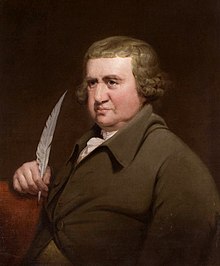**Biographical Details**:
– Erasmus Darwin was born in 1731 at Elston Hall, Nottinghamshire, England.
– He was the youngest of seven children and received his education at Chesterfield Grammar School and St Johns College, Cambridge.
– Darwin obtained his medical education at the University of Edinburgh Medical School and settled as a physician in Nottingham in 1756, later moving to Lichfield.
– He married twice, had 14 children, and was a member of the Freemasons throughout his life.
– Darwin died suddenly in 1802 at Breadsall Priory, possibly due to inflammation in his breast and lungs.
**Literary and Scientific Contributions**:
– Darwin formed a Botanical Society in Lichfield and translated Carl Linnaeus’ works into English.
– He wrote influential works like ‘The Loves of the Plants’ and ‘Economy of Vegetation’ and advocated for better education for women.
– Darwin’s work anticipated evolutionary ideas later developed by Jean-Baptiste Lamarck and his grandson, Charles Darwin.
– His poetry, particularly ‘The Loves of the Plants’ and ‘The Temple of Nature,’ integrated scientific interests like botany and cosmology.
**Inventions and Innovations**:
– Darwin invented various technologies, including a horizontal windmill, a stable carriage, and the Ackermann linkage steering mechanism.
– He also designed a speaking machine, a canal lift for barges, and weather monitoring devices.
– In 1779, Darwin sketched a visionary hydrogen-oxygen rocket engine, laying the foundation for future developments in rocketry.
**Social and Intellectual Circles**:
– Darwin was part of the Lunar Society, which included influential figures like Josiah Wedgwood and James Watt.
– Members of the Lunar Society opposed the slave trade and supported social causes.
– Darwin’s friendships with Benjamin Franklin and his opposition to the slave trade in his works reflected his involvement in social and intellectual endeavors.
**Legacy and Commemoration**:
– Erasmus Darwin House in Lichfield, Erasmus Darwin Academy in Burntwood, and a science building at Nottingham Trent University bear his name.
– Darwin’s significant contributions to science, literature, and societal progress are commemorated in various locations.
– The tributes ensure that Darwin’s legacy continues to inspire future generations and his work remains influential in multiple fields.
Erasmus Robert Darwin FRS (12 December 1731 – 18 April 1802) was an English physician. One of the key thinkers of the Midlands Enlightenment, he was also a natural philosopher, physiologist, slave-trade abolitionist, inventor, and poet.
Erasmus Darwin | |
|---|---|
 Erasmus Darwin c. 1792–1793, oil painting by Joseph Wright of Derby, Derby Museum and Art Gallery | |
| Born | Erasmus Robert Darwin 12 December 1731 |
| Died | 18 April 1802 (aged 70) |
| Resting place | All Saints Church, Breadsall |
| Alma mater | |
| Children | 14 |
| Parents |
|
| Relatives | See Darwin–Wedgwood family |
His poems included much natural history, including a statement of evolution and the relatedness of all forms of life.
He was a member of the Darwin–Wedgwood family, which includes his grandsons Charles Darwin and Francis Galton. Darwin was a founding member of the Lunar Society of Birmingham, a discussion group of pioneering industrialists and natural philosophers.
He turned down an invitation from George III to become Physician to the King.
